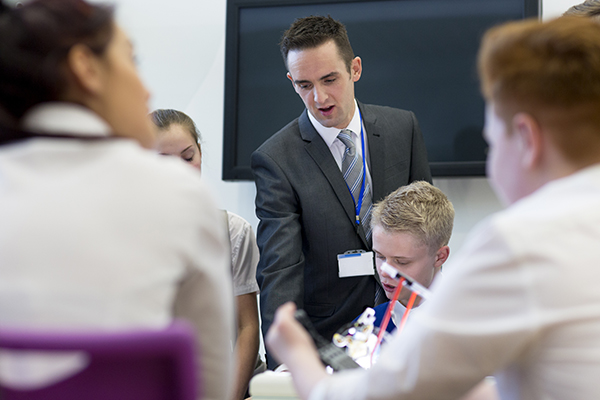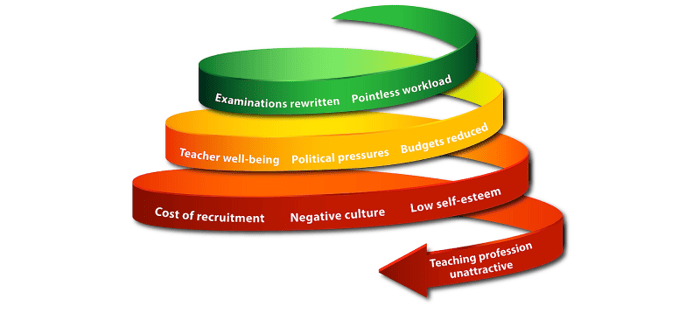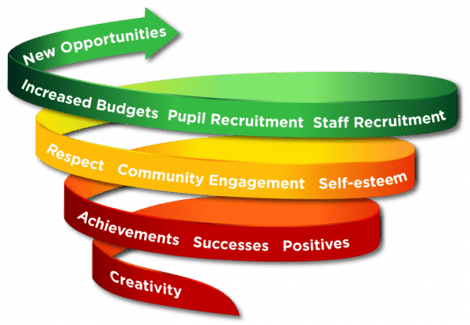- Blogs
- 2 Minute Read


As FullFact reports, ‘The number of qualified teachers leaving the state sector has been slowly increasing,’ with the current rate being between 10-11 per cent of qualified teachers departing each year. While in some places, this is broadly balanced by the number of teachers joining the profession, areas such as London are seeing a higher proportion leaving; hence the global teacher recruitment and retention problem.
In March 2017, Recruitment International quoted findings from the Universities and Colleges Admissions Service (UCAS), which showed that “acceptances to teacher training courses for this year have dropped by 7 per cent. Only 26,000 individuals were accepted on to teacher training courses for 2016-2017, meaning that government targets for teacher recruitment in England have now been missed for five consecutive years.”
Added to this issue, the hardest hit regions, including London are simply not able to source enough qualified secondary school teachers. The final nail in the coffin is the fact that surveys show that at the current time, an ever-increasing number of teachers are seriously considering leaving the profession.
Before we can consider how to address this crisis we have to ask several questions. Why are teachers leaving? What is currently wrong within the teaching profession and what are we doing to change this? What is a teacher’s role now and what will it be in the near future?
When we look at the first question (why teachers are leaving), it is interesting to note that some of the teachers that exit the profession in any given year, do come back to teach in the state sector later in their career; 17,200 teachers returned in 2015. I personally believe that this is because at the heart of every teacher there is a passion to see students thrive.
But getting back to the point in question, when we consider ‘what is currently wrong within the teaching profession’ we are finding that many demotivated teachers say that the over-arching feeling is one of broad ranging doom and gloom; a generally negative feeling about their careers. Common complaints include the behaviour of students, a lack of support from parents, accountability, workload, the enormous pressure they are under, and a lack of respect and appreciation for the incredible commitment they make.
Every day something good happens in a school. What is important is that teachers and school leaders look for it and celebrate it. By celebrating success, we start to long journey towards seeing teachers as the professionals they are. And these professionals need to receive the highest quality support and development to refine and enhance their teaching, in the same way as other professions do. We have to invest in the future of our teachers, students and in turn, the future of our economy.
It is only by focusing on what is good in any one teacher, that we start to understand which other areas can be refined and enhanced.
Instead of an ever-increasing downward spiral of the image of teaching, the small, positive things have to be celebrated and marketed to parents and the wider society.
Many schools are starting to use social media to promote excellence in students; those who have passed exams with the highest grade, or one child who is competing for his county in gymnastics. What we must also do is remember who it is who inspires and helps these children to excel.


When we visit schools that are using our self-review video technology, it is heartening to see teachers being able to see the best parts of their teaching. With our guidance, they can be autonomous in understanding how to analyse and constructively review their teaching and recognising what can be refined.
When done well, reflective practice can be an incredibly powerful opportunity to develop teachers, keep them in the profession and share best practice.

The School of the Future Guide is aimed at helping school leaders and teachers make informed choices when designing the learning environments of the future using existing and upcoming technologies, as they seek to prepare children for the rest of the 21st century – the result is a more efficient and competitive school.
KEEP IN TOUCH WITH ONVU LEARNING AND RECEIVE THE LATEST NEWS ON EDTECH, LESSON OBSERVATION, AND TEACHER TRAINING AND DEVELOPMENT.